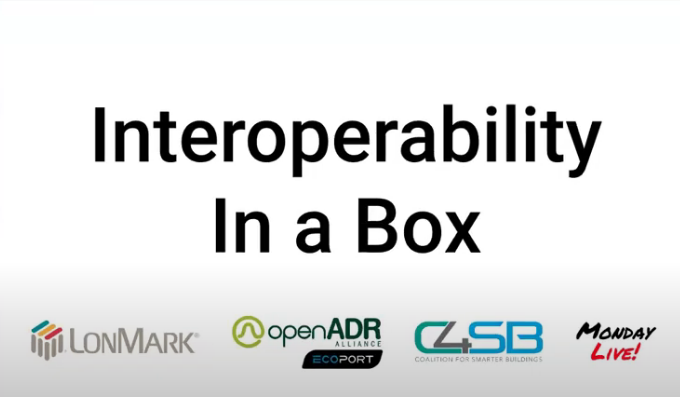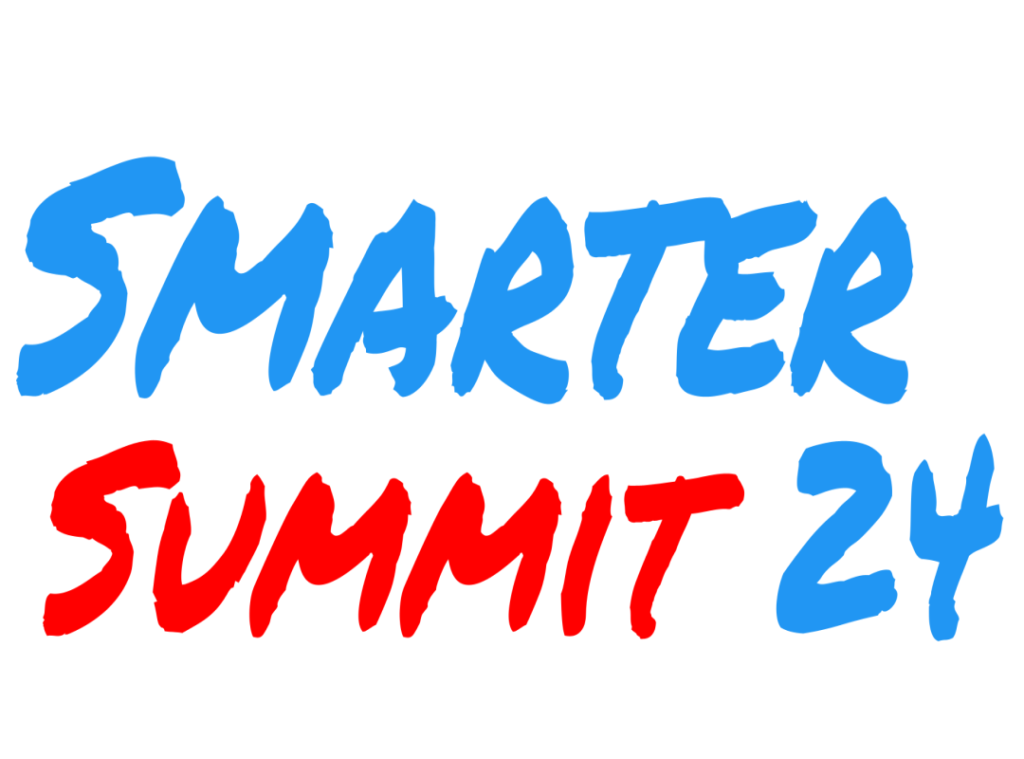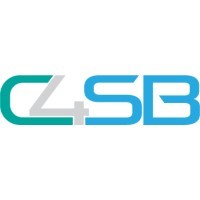A pre-AHR summit to explore the advancement of design, specification, procurement, and maintenance of systems for smarter buildings.
Location
Room N228 – McCormick Place, Chicago IL2301 South Doctor Martin Luther King Junior Drive Room N228 Chicago, IL 60616 United States
Get Free tickets for the event
Charting the Path to Cloud-Native Buildings
The Coalition for Smarter Buildings (C4SB), in partnership with Monday Live! and other leading BAS industry groups, is organizing a pre-AHR Summit to explore the advancement of technology and business practices in the design, specification, procurement, installation, and maintenance of systems that make buildings smarter.
The Summit is being held on the eve of AHR Expo 2024 as the industry gathers to showcase new technologies, products, and solutions. The networking format of the Summit is designed to provide attendees with the maximum opportunity to compare notes, understand new initiatives, and plan to take action to make commercial buildings smarter collectively.
Motivations
Since the last Smarter Summit 23 in Atlanta, significant progress has been made by the C4SB and Monday Live! ecosystem to further describe and actualize the technologies, business approaches, and best practices necessary for the future of cloud-native smarter buildings.
The work of the ecosystem has been motivated by several clearly defined challenges that the industry is trying to overcome to grow the market. The strategy is to make it easier to scale innovative technologies to the millions of smaller and less complex buildings globally that have, to date, not had the benefits of smart technology.
The topics that will be covered at Smarter Summit 24 include:
The Smarter Stack
A tool created by the community in 2021, the stack maps your smarter building’s most essential components, technologies, and issues. The Smarter Stack maps the business purpose and the building operators’ needs, as well as a view of the technology stack from data governance, orchestration, applications, and delivery methods to the business and operation users.
The Smarter Stack can be used to communicate requirements and to model different solution stacks to identify overlaps and perform a gap analysis of any possible solution stack.
Managing Cybersecurity
Most in the industry appreciate that cybersecurity is an essential topic for buildings. This is becoming more evident as systems in buildings are becoming more complex and increasingly dependent on the IT systems and technologies in the building. BAS professionals are now partnering with the IT industry and enterprise system players responsible for security.
As vendors build better and more secure products, the ecosystem faces the challenges of managing its systems securely. At the same time, integrators continually seek secure, interoperable solutions to make their integration projects more efficient and satisfy their clients’ need for information about their real estate assets and ongoing operations.
Office Armageddon
We are all aware of the post-Covid challenges of returning to the office. This global issue has placed significant pressure on building owners, financial markets, and those relying on commercial office buildings. This is because the current use patterns significantly question the cost of providing office space when only minimally occupied.
The reality is that over time, the use of these buildings will evolve into a new normality, and existing buildings will be repurposed or replaced, leading to a new set of needs for technology to control and manage those new uses. The one attribute we know about these new needs is that the flexibility of the use of space is paramount, unlike the decade-long stability of buildings we’ve assumed in the past. The industry must focus on delivering such flexibility.
Need for Interoperability
A topic familiar to many in the ecosystem, the important recognition today is that interoperability is required in many different areas, both in the technology stack (from interoperable devices, networks, open source tools, applications, and their delivery to users) and the industry supply chain (standardized products, best practices, open distribution, and workplace skills).
The fact that interoperability is so critical places it at the center of the Smarter Summit agenda. We believe interoperability and openness are critical to growing and scaling the industry to deliver smarter solutions to all buildings regardless of size, location, complexity, and function.
Real and true holistic (full-stack) interoperability is also THE critical enabler for delivering a tsunami of innovation at scale with minimal barriers.
ESG and Decarbonization
Strengthened by the recent global launch for Near-Zero Emission And Resilient Buildings By 2030 unveiled at COP28 in Abu Dhabi, the climate challenge we face requires us to seriously address and mitigate carbon emissions from buildings. We strongly believe that having a robust and flexible information infrastructure in buildings is a critical component of the world’s toolset to achieve this objective.
The vast amount of information currently locked up in buildings must be extracted and used to pursue this global challenge. A consistent thread in the Summit agenda is the understanding that this data must be revealed and used to measure and track the path to decarbonization.
Workforce Challenges
In the midst of the many challenges we face as an industry, Workforce is the most pressing from a business perspective. In addition to the generational shift we see as baby boomers retire, we are seeing increasingly complex technologies being introduced to an industry that is not ready to deploy them. This has created a skill gap that is a challenge for the industry.
During the Summit, we will receive a State of the Workforce presentation on workforce development from leading thinkers. We will also relate all of the other topics of the Summit to their impact on our industry’s future workforce.
Artificial Intelligence (AI)
Without question, 2023 was a year of awareness of Artificial Intelligence and Machine Learning for all of us. From the enormous success of chatGPT and other AI platforms, the wide public dialog about the future of AI regarding security and privacy, and the very real question about how AI/ML will change the technology, product, and workforce landscape of smarter buildings.
The Summit agenda covers AI from a number of perspectives: from the anticipation of new AI-based products to the challenges of protecting a new class of AI-generated intellectual property and the new skillsets necessary to design, deploy, and operate AI systems; and lastly, the challenges to ensure that the quality, trustworthiness, and provenance of the data that is being used to feed AI/ML systems.
System-of-Systems (SoS)
As building systems become more complex, new tools and methods are necessary to create the right information architecture to enable smarter buildings. The concept of Systems-of-Systems, often the way to think about hugely complex military and health systems, is indeed our friend. SoS is a great way to simplify the interoperation of systems in a loosely coupled manner, highly suitable for the required flexibility of the future of buildings.
The Systems-of-Systems approach that many of the open-source tools being developed by the community will be explored and discussed during the Summit, as will the implications of these new technologies for your workforce, tools, and product and technology selection.
Grid Interactivity
A key component to globally addressing decarbonization is for buildings to work interactively with the grid and energy providers to balance energy consumption with available generation, especially in light of the intermittent renewable generation from wind and solar. Demand Response is one of the ways to think of this, with utilities offering compensation for buildings to reduce consumption at heavy load times, such as at the height of summer and winter.
As part of making buildings smarter, it is critical that they are smart in how they interact with energy providers. The framework for this was the publication of the National Roadmap for Grid-Interactive Efficient Buildings. The Summit will present an approach to enable this interactivity at scale using standards created by the energy industry under the leadership of the OpenADR Alliance.
Agenda
PRELIMINARY – PLEASE CHECK BACK FOR UPDATES.
The evidence of changes that we are witnessing daily represents a broad swath of areas of progress in many disciplines, from core technologies to business practices and global trends. They each impact making buildings smarter, but in combination, they collectively present an opportunity to rethink the application of technology for commercial buildings in the future.
The Summit is organized to identify and connect these initiatives and socialize ways the industry can best rethink and collaborate to maximize their collective benefit for building owners, vendors, and the many stakeholders involved in designing, implementing, and operating smarter buildings.
Smarter Summit 24 Agenda Workdoc
Hosts: Rick Justis, Kennady Gales, and Anto Budiardjo
3:00 Keynote: The Vision Towards Cloud-Native Buildings
Speakers (preliminary): Glen Allmendinger, Rick Justis, Kennady Gales, and Anto Budiardjo
- How we got here
- Brief recap of Atlanta – Clearly, there is a need to take Action!
- Cloud-native – Why it’s critical for buildings (covers the IBB)
- Disruption or Opportunity?
- AI??
- None of us can do this alone! It’s a collaborative effort
3:30 Specifying and Procuring Smarter Buildings
Speakers (preliminary): James Lee, Peter Scanlon, Buyer?
- Smarter Stack refresher
- Div 2525 1.1 update
- Capital vs Operating
- Buy stuff that works together in interoperable ways
- Open and secure is not an oxymoron!
- Do we need to offer BaaS? (Building as a Service)
4:00 IBB – Open Industry Platform for Interoperability
Speakers (preliminary): Anto Budiardjo,
- Introduce the IBB (why, what, where, who) – 5 min
- Introduce the IBB.zone – 5 min
- Install IBB App #1
- Install IBB App #2 that connects to #1
- Install additional Apps to show the information flow
- Move an App from one IBB to another (flexibility)
4:30 Ecosystem Panel Discussion
Moderator (preliminary): Tracy Markie, Tristan de Frondeville, Ryan Brothers, Fred Gordy
- How does this approach change what you do to make more $$$
- This open architecture is ripe for an ecosystem of innovation
- How has the experience been for vendors adopting the IBB?
- Can we express the value of the ecosystem in business terms
- Who are the stakeholders benefiting from an open architecture, and how?
5:00 Workforce Innovation is Changing the OT Industry
Speakers (preliminary): Melissa Boutwell, Steve Fey,
In the 21st century, computing has become cloud-native for virtually every industry. The OT industry is struggling to adapt, and in this session, we will outline how today’s workforce is pushing our industry to make this transition a reality across the supply chain. What is behind this imperative?
1. There is a severe lack of talent in our industry that can be mitigated in part by OT product innovation that reduces the cost of labor.
2. IT skills are essential for implementing cloud-native OT systems, and our educational institutions are responding to the challenge.
3. Government agencies at all levels have determined that OT systems constitute critical infrastructure and, therefore, must meet the current standards for security and data accessibility.
5:30 Action Stations! Let’s Get Smarter Together!
Facilitators (preliminary): Glen Allmendinger, Rick Justis, Kennady Gales, and Anto Budiardjo
- Recap of realizing the vision
- How can you get involved
- All of this at AHR Expo 2024:
- Booth S6325
- Automated Buildings and Other Educational Sessions
- The IBB Workshop on Wednesday 11am-2pm
- Realcomm 2024 Tampa




